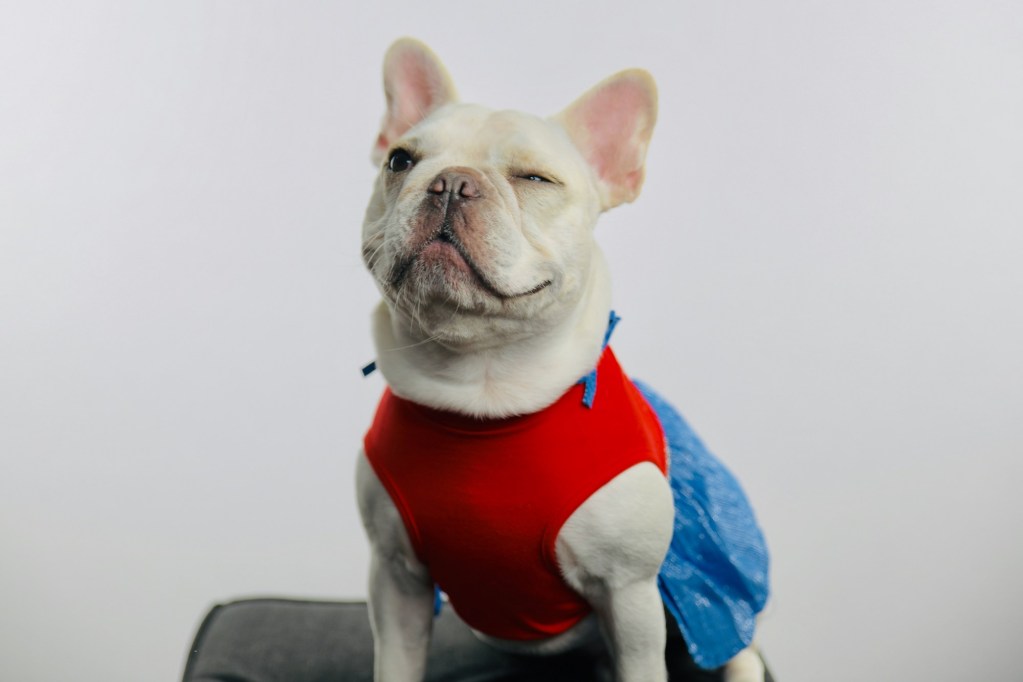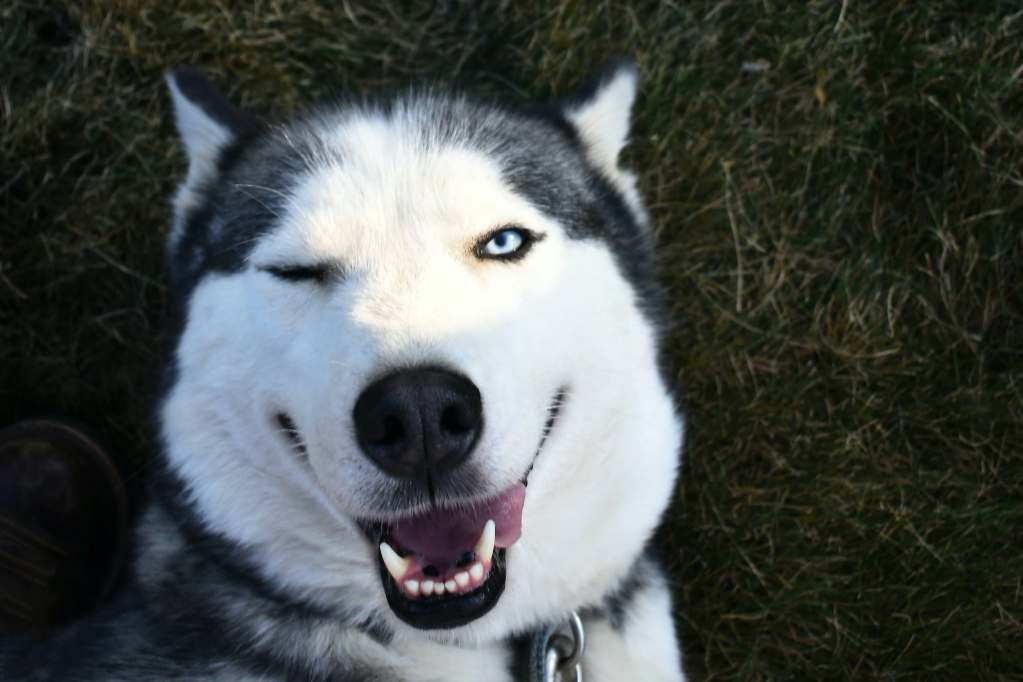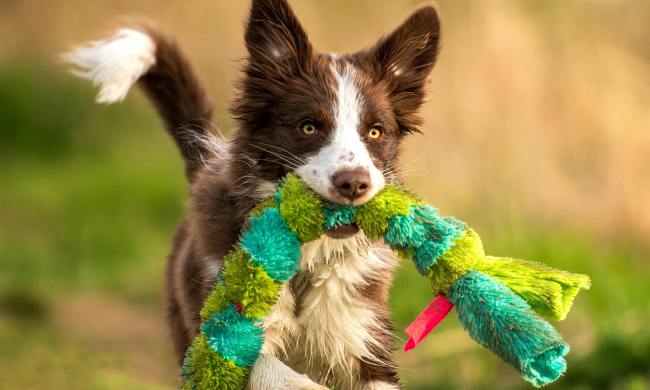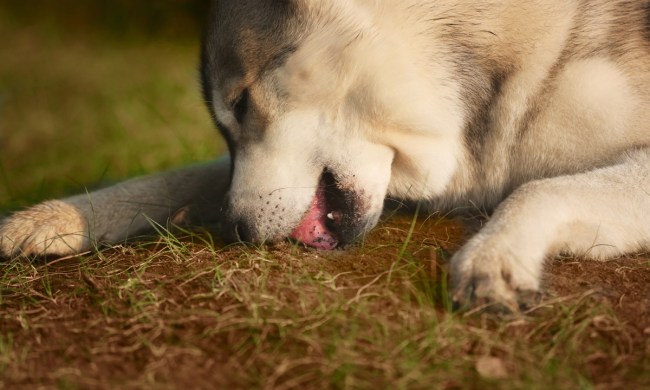
If you think you’ve seen your dog give you a saucy wink every once in a while, you’re probably not wrong. Many dogs wink on a regular basis — sometimes even intentionally — and it’s no wonder why pet parents want to know more about this unusual habit. Not only is it adorable, but it’s sometimes a way of communicating, too. And don’t you want to know what your expressive furry friend is trying to tell you?
So, if you’ve ever asked yourself, “Why do dogs wink?” you’re in the right place. Let’s find out more about this cute and fascinating behavior.

Why do dogs wink?
There are several reasons why a dog may appear to wink at you, some of which are more intentional than others. Do keep in mind that you and your dog are different species, though, so you can rest assured your buddy isn’t trying to let you in on a secret.
Winking and blinking can be common appeasement and affectionate behaviors
Even if your pup isn’t hinting at something with a sassy wink, they may be trying to tell you they love you and feel safe by your side. After all, a wink can be a variation on the famous and beloved slow blink.
As dog trainer Tasmin de la Harpe explains, slow blinking is one common appeasement signal that dogs give to other dogs and people whom they love. And cats do this slow blink, too. It can mean anything from “I feel safe here” to “I love you.” They could even be telling you that they love the way you’re scratching behind their ears or brushing their fur.
Your dog is mimicking you or looking for your reaction
Sometimes, dog owners inadvertently teach dog behaviors they think are cute. If you start to react and reward your dog with attention and praise when they wink for other reasons, they’re more likely to do it again just to get your attention. It’s also possible that your dog is mimicking a behavior that you’ve shown to them in an effort to connect and communicate.

Health problems that cause a dog to wink
Sometimes, winking is caused by something not so comfortable. While the occasional wink is rarely cause for concern, dog owners should schedule a visit with the veterinarian if their dog starts winking repeatedly. Of course, another telltale sign of a problem, such as eye redness, weeping, or frequent scratching, warrants a vet visit, too.
Winking can be a sign of eye irritants or infections
As adorable as it may look, winking is most often just an involuntary eye spasm. This can happen because of bright lights, irritants in the air, or even an oncoming sneeze. While some triggers will be more obvious, such as sand in their eyes while at the beach, others may require closer inspection. This is when taking a closer look with a light can help. Whether you’re dealing with some eye mucous or something more complex like pink eye, most eye concerns can be easily solved with a vet visit, at-home remedies, or some time.
Most of the time, winking isn’t a cause for concern. In fact, it may be a behavior that a dog picks up from their owner or just an involuntary reaction to something in the environment. Whatever the cause behind it, there is one thing all dog owners can agree on — it’s priceless to witness.



